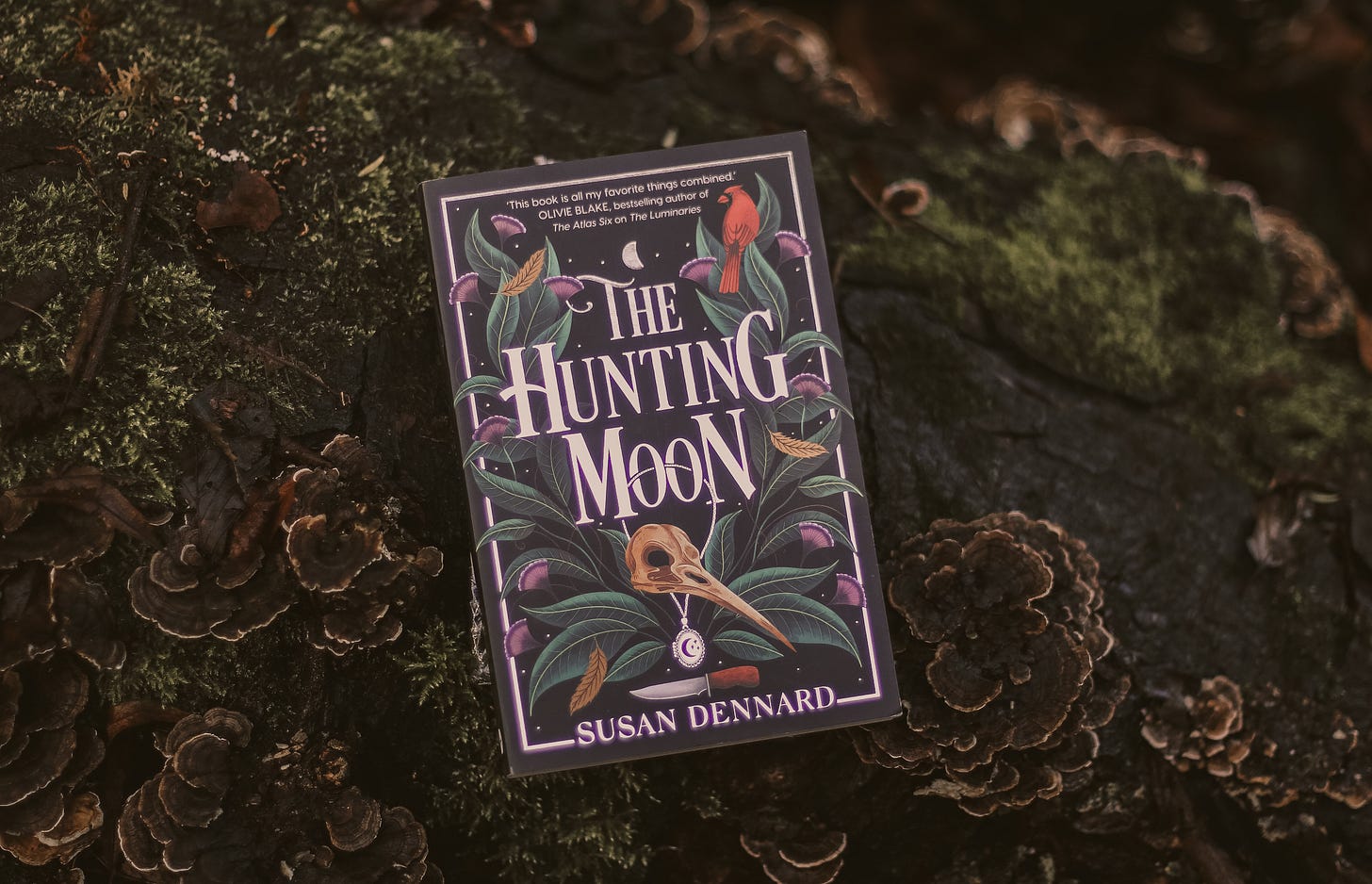How I Build Worlds
From logistics to maps to cultural sensitivity
🚨 Only FOUR MORE DAYS to grab pre-order goodies for The Hunting Moon. You can instantly gain access to my Beginner’s Guide to Revising a Novel course and a live workshop too—all you have to do is submit your receipt. Learn more here!
And also, if you’re in the US/Canada, get your enamel pin here for US and Canadian editions! (Links to pre-order on this page!)
Don’t forget about signed, personalized copies from Schuler Books or Good Choice Reading! They ship internationally, and those orders will include the enamel pin!
Also, there’s the STUNNING Waterstones edition which it seems they are shipping early and many people have already received. 😌
Oh, and last but hardly least: the Illumicrate version, which is almost all gone. So grab one vite vite!
One more obligatory reminder: my tour kicks off on Monday! So come see me! Events are ticketed, so make sure you register at the links here.
Now onto the meat of this post!
Carly asked:
What advice do you have for someone who is new to and very intimidated by worldbuilding? I feel like I don't necessarily have a ton of organic ideas for it (or for much of anything right now), but second-world fantasy is something I really enjoy reading and something I would love to write someday. The newsletter has been such a help and inspiration!
I am (again) going to pull from a lesson in my upcoming Academy’s How I Write a Novel course. So I hope this helps you, Carly! And thanks for being a paid subscriber.💚
And of course, if you want early access to my Beginner’s Guide to Revising a Novel course, then enter the pre-order giveaway for The Hunting Moon here!
Lesson 2: Building Worlds
Logic and Logistics
Logistics and logic? I’m a fiction writer, Sooz, not a technical writer!
Look, I get it. As storytellers, we absolutely have a license to make stuff up. Loads of stuff. Weird, random stuff. But, as addressed in the first lesson of this course, we also need to do everything we can to establish the credibility of our made-up worlds (you know, with research).
Fictional worlds have rules, and the author must obey those rules.
Readers willingly suspend their disbelief when they open a book. They know what they’re reading isn’t real, but they’ve agreed to play along—and, of course, this is especially true in fantasy.
Our goal is to keep readers immersed in our stories; we don’t want anything to take them out of the narrative. And the fastest way to do this is to break the rules you, the author, have established.
Imagine someone is reading a gritty, hard-boiled thriller, when out of nowhere the detective suddenly takes off flying or has a temporary burst of ESP or spontaneously melts into a formless pile of goo. All of those might be fine plot points in the right kind of story, but in a realistic thriller, they don’t adhere to the world’s rules (or the genre conventions).
Here’s a small example that ALWAYS DRIVES ME UP THE WALL: a female cop who chases down the bad guy in 3-inch heels. Does she look good doing it? Hell yeah. But is it physically possible? No. At least not for 99% of us.
And that right there pulls me out of the story. That right there breaks the most basic rules of physics and anatomy. Suddenly I’m annoyed and no longer engrossed in the story. HER POOR ANKLES, OKAY?
This is where logic and logistics come in.
Logic
For me, logic is about making sure everything that happens in a story is consistent with the rules of the world I am creating. You might think of a story’s internal logic as its natural laws—its gravity, time, seasons, etc. If a character can read minds, how could another character lie to him? If a character can teleport, why would a normal jail cell hold her? It’s essential that we think through the logic of our invented world and keep it consistent.
Logistics
Logistics have to do with how we coordinate all of our characters, places, and things, and how they all fit together in time and space. That is, how does the world actually work? Where do people get their food? Their water? How long should it take an army to march from the coast to a mountaintop castle in the interior?
Keep reading with a 7-day free trial
Subscribe to Misfits & Daydreamers to keep reading this post and get 7 days of free access to the full post archives.



